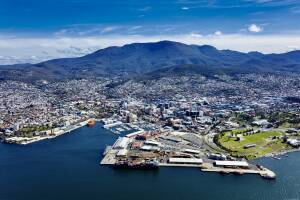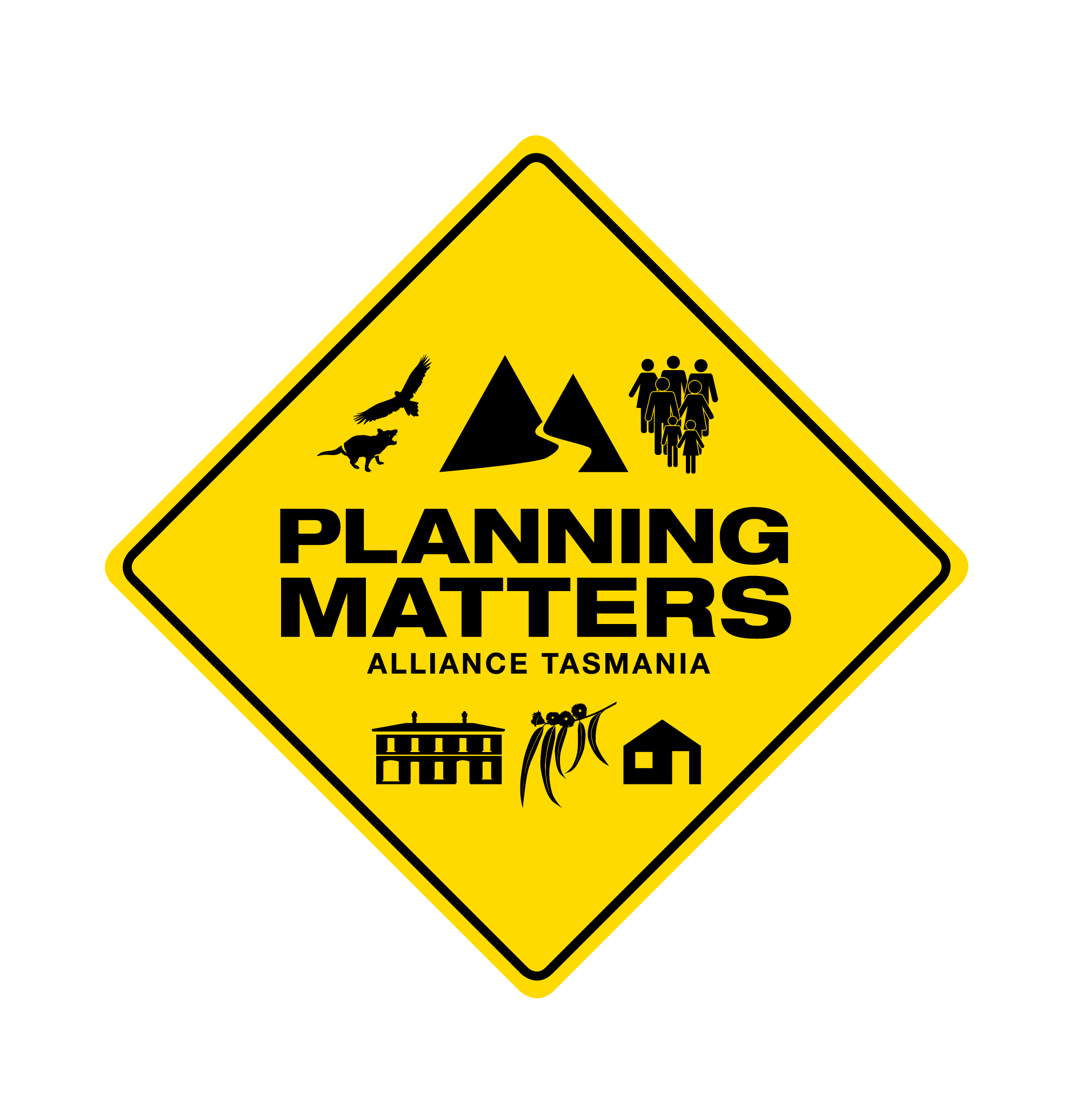- Submission
PMAT Submission: Tas Planning Commission Review
Media Enquiries
Sophie Underwood
PMAT State Director
sophie_underwood@hotmail.com
0407 501 999
Please share:
Further to a submission lodged by Sophie Underwood on the 6 May 2020, please see attached the Planning Matters Alliance Tasmania’s submission regarding the Tasmanian Planning Commission Review.
The Planning Matters Alliance Tasmania (PMAT) is a growing network of over 60 community groups from across Tasmania, united with a common concern over the weakening of the state’s planning laws and the need for a shared vision for our future.
To achieve the best future for Tasmania and all Tasmanians, PMAT believes the land use planning system must be underpinned by the six key principles, outlined in our Platform document.
PMAT believes that an effective land use planning system is one which provides for economic development that respects our local amenity and character, safeguards our natural and cultural heritage, our sense of place, our brand, and allows the Tasmanian community to participate transparently in planning and development decisions that affect their future.
PMAT believes that together, we can ensure Tasmanians have a say in a planning system that prioritises the health and well-being of the whole community, the liveability of our cities, towns and rural areas, and the protection of the natural environment and cultural heritage.
PMAT’s overall position is that we must preserve and strengthen the independent Tasmanian Planning Commission (TPC).
Any changes to the TPC could fundamentally change the planning system, and how we the community are involved in the resource management and planning decisions/processes.
There are concerns that the review of the TPC is part of a broader move to a Minister-centred model of decision-making, displacing the role of the TPC as an independent decision-maker and advisor. This is important because the TPC is an independent expert body, which provides the community with a fair hearing on resource management and planning matters.
PMAT’s key recommendations are:
The TPC must have its independence maintained, broadened and strengthened
- The TPC must retain its capacity to perform its current functions independently of government.
- The TPC’s power to act independently of the government should be expanded. The TPC should be given the power to make and amend the Tasmanian Planning Scheme.
- The TPC’s governance should be free from Ministerial influence, and no changes should be made that undermine the public perception of the independent operation of the TPC.
- Any public consultation conducted by the TPC, and subsequent determination by the TPC based on that consultation, should be directly passed to the Minister (i.e. NOT IGNORED).
The TPC must maintain its function in policy development
- Retain its existing role to review and hold hearings on representations, and report to the Minister on draft State Policies and amendments.
- Retain its existing role to report to the Minister for Planning regarding Draft Tasmanian Planning Polices and to amend any planning scheme to be consistent with a those policies.
- Restore its role as the body responsible for making planning scheme controls and amendments by making the TPC the decision-maker for State Planning Provisions and removing Ministerial oversight for Local Provisions Schedules. This would provide the TPC with an important role in influencing planning policy.
The TPC must develop Tasmania’s Regional Land Use Strategies
- Legislation should be changed to give the TPC the responsibility to develop, amend and approve Regional Land Use Strategies with public notice and hearings.
The TPC must maintain its function of assessing Projects of State and Regional Significance
- The TPC must retain its existing responsibility to assess Projects of State Significance e.g. major projects like Gunns Pulp Mill and Ralphs Bay, and to provide advice and recommendations to the Minister.
- The role of the TPC in assessing and approving Projects of State and Regional Significance through existing processes should not be undermined e.g. through the draft Major Projects Bill.
The TPC must retain its function of Reviewing National Park and Reserve management plans
- The TPC’s role in independently and transparently reviewing reserve management plans must be retained and legislation should be amended to clarify that the TPC may make recommendations for changes to reserve management plans.
State of the Environment Reporting should remain with the TPC
- The problems with State of the Environment (SoE) reporting identified by the TPC in 2013 (and reconfirmed in 2018) should be addressed and the TPC should continue to produce SoE reports each five years. These reports are vital for a range of reasons, including informing good planning.
The TPC must be properly funded
- Properly fund the TPC to allow it to carry out existing statutory roles, including the State of Environment Report and new State Policies.
Please see attached our background report as to why we make these recommendations and a list of the Tasmanian Planning Commission’s current roles and functions which provides context to our recommendations.
More Submissions

The Future of Local Government Review – PMAT Submission on the Final Report
The Future of Local Government Review – PMAT submission on the Final Report, October 2023

PMAT Submission: The Future of Local Government Review Stage 3
Rather than undermining local Councils with the effective State Government takeover of Planning and Local Government, via the Tasmanian Planning Scheme, removing Councils as a

Representation – Draft Tasmanian Planning Policies
PMAT has been responding to the largest planning reform agenda in Tasmania’s history which has been conducted largely over two phases.

PMAT Submission: Regional Planning Framework March 2023
The regional planning framework refers to the legislative, regulatory or administrative arrangements that support Tasmania’s three Regional Land Use Strategies (RLUSs) which provide a high-level

Support Us
Receive News & Updates from PMAT
Stay informed on what’s happening locally and statewide within Tasmania, and join our community in advocating to protect Tasmania’s future.